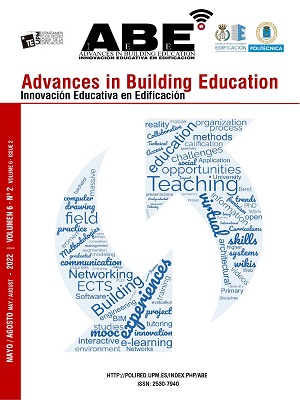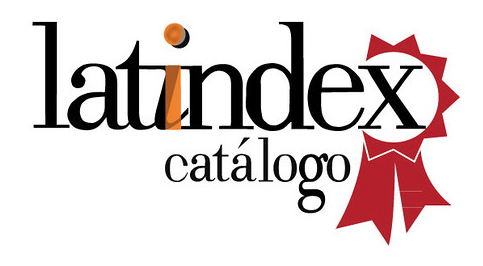Motivational Assessment of Engineering Students at two centres of the University of Extremadura
DOI:
https://doi.org/10.20868/abe.2022.2.4943Palabras clave:
Motivation, Industrial Engineering, Teaching, MAPE-IIResumen
The student's motivational orientation is an indispensable factor for adequate learning during their formative years. The knowledge of motivational orientations allows teachers to enhance the performance of their students. The objective of this work is to compare the motivation of students from two Industrial Engineering centres of the University of Extremadura (Spain). To evaluate these factors, the MAPE-II tool was implemented. The methodology assesses student motivation by focusing on three motivational orientations: learn, results and fear of failure motivation. In addition, the tool allows to know and quantify the motivational orientations of the students through a questionnaire. The Cronbach's Alpha test was used to analyse the internal consistency of the student's responses. Centre 1 presents a higher value in the learning motivation dimension, comparing the results of the dimensions obtained in the two centres analysed. Centre 2 obtained a large increase in the mean value of the second dimension related to motivation for results. Finally, it should be noted that the fear of failure dimension shows much higher values in Centre 2. The analysis of the student's motivational orientation makes it possible to determine negative aspects of learning and to be able to establish the necessary intervention measures to maximize their performance.Descargas
Referencias
Y. Kim, A.C. Brady, C.A. Wolters, "Development and validation of the brief regulation of motivation scale", Learn. Individ. Differ. 67, 259-265, 2018. https://doi.org/10.1016/j.lindif.2017.12.010. https://doi.org/10.1016/j.lindif.2017.12.010
S. Järvelä, H. Järvenoja, J. Malmberg, "How elementary school students' motivation is connected to self-regulation", Educ. Res. Eval. 18, 65-84, 2012. https://doi.org/10.1080/13803611.2011.641269. https://doi.org/10.1080/13803611.2011.641269
A.C. Garn, A.J.S. Morin, "University students' use of motivational regulation during one semester", Learn. Instr. 74, 101436, 2021. https://doi.org/10.1016/j.learninstruc.2020.101436. https://doi.org/10.1016/j.learninstruc.2020.101436
M. Carrillo, J. Padilla, T. Rosero, M. Sol Villagómez, "La motivación y el aprendizaje", Alteridad. 4, 20, 2011. https://doi.org/10.17163/alt.v4n2.2009.03. https://doi.org/10.17163/alt.v4n2.2009.03
M. Fırat, H. Kılınç, T.V. Yüzer, "Level of intrinsic motivation of distance education students in e-learning environments", J. Comput. Assist. Learn. 34, 63-70, 2018. https://doi.org/10.1111/jcal.12214. https://doi.org/10.1111/jcal.12214
X. Wang, "Why Students Choose STEM Majors", Am. Educ. Res. J. 50, 1081-1121, 2013. https://doi.org/10.3102/0002831213488622. https://doi.org/10.3102/0002831213488622
M. Corrales-Serrano, "Estudio de las Motivaciones Internas y Externas para la Elección de Modalidad del Alumnado de Bachillerato". Incidencia en la Didáctica de las Ciencias Sociales, Universidad de Extremadura, 2020.
J.P. Carrasco-Amador, J. García-Sanz-Calcedo, F.J. Moral, J. González-Domínguez, M. Matamoros-Pacheco, G. Sánchez-Barroso, "Comprehensive Virtualization of Graphic Expression Subjects in Engineering Degrees", Adv. Build. Educ. 5, 9, 2021. https://doi.org/10.20868/abe.2021.2.4718. https://doi.org/10.20868/abe.2021.2.4718
K.A. Robinson, Y. Lee, E.A. Bovee, T. Perez, S.P. Walton, D. Briedis, L. Linnenbrink-Garcia, "Motivation in transition: Development and roles of expectancy, task values, and costs in early college engineering.", J. Educ. Psychol. 111, 1081-1102, 2019. https://doi.org/10.1037/edu0000331. https://doi.org/10.1037/edu0000331
B. Lazzarini, A. Pérez-Foguet, A. Boni, "Key characteristics of academics promoting Sustainable Human Development within engineering studies", J. Clean. Prod. 188, 237-252, 2018. https://doi.org/10.1016/j.jclepro.2018.03.270. https://doi.org/10.1016/j.jclepro.2018.03.270
J. González-Domínguez, G. Sánchez-Barroso, F. Zamora-Polo, J. García-Sanz-Calcedo, "Application of Circular Economy Techniques for Design and Development of Products through Collaborative Project-Based Learning for Industrial Engineer Teaching", Sustainability. 12, 4368, 2020. https://doi.org/10.3390/su12114368. https://doi.org/10.3390/su12114368
J. Hudson, Y. Kuroda, P.C.H. Morel, "Personality and motivational predictors of well-being and coping during COVID-19: A reversal theory analysis", Pers. Individ. Dif. 175, 110703, 2021. https://doi.org/10.1016/j.paid.2021.110703. https://doi.org/10.1016/j.paid.2021.110703
G. Sánchez-Barroso, J. González-Domínguez, J. García-Sanz-Calcedo, F. Zamora-Polo, "Analysis of Learning Motivation in Industrial Engineering Teaching in University of Extremadura (Spain)", Sustainability. 12, 4987, 2020. https://doi.org/10.3390/su12124987. https://doi.org/10.3390/su12124987
Montero, J. Alonso Tapia, "El cuestionario MAPE-II". In Motivar en la Adolescencia: Teoría, Evaluación e Intervención,Servicio de Publicaciones de la Universidad Autónoma de Madrid, Madrid, Espa-a, 1992.
G.F. Kuder, M.W. Richardson, "The theory of the estimation of test reliability", Psychometrika. 2, 151-160, 1937. https://doi.org/10.1007/BF02288391
IBM Corp, IBM Statistics, 25th ed., (2019).
M. Botejara-Antúnez, G. Sánchez-Barroso, J. González-Domínguez, J. García-Sanz-Calcedo, "Determining the Learning Profile of Engineering Projects Students from Their Characteristic Motivational Profile", Educ. Sci. 12, 256, 2022. https://doi.org/10.3390/educsci12040256. https://doi.org/10.3390/educsci12040256
A.G. González, D.R. Salgado, J.G. Sanz-Calcedo, C.C. García, J.B. Muriel, O.L. Pérez, F.J.Á. García, "A teaching methodology for the real-time assessment of students' competencies related to manufacturing subjects using technology based on electronic devices", Procedia Manuf. 41, 579-586, 2019. https://doi.org/10.1016/j.promfg.2019.09.045. https://doi.org/10.1016/j.promfg.2019.09.045
Descargas
Publicado
Número
Sección
Licencia
ABE (Advances in Building Education / Innovación Educativa en la Edificación) no aplica cargo alguno a los autores por procesar o publicar un artículo y provee acceso abierto (Open Access) inmediato a su contenido. Todo el contenido está disponible gratuitamente sin cargo para el usuario o su institución. Se permite a los usuarios leer, descargar, copiar, distribuir, imprimir, buscar o vincular a los textos completos de los artículos, o utilizarlos para cualquier otro propósito lícito, sin pedir permiso previo del editor o el autor. Esto está de acuerdo con la definición de acceso abierto de la BOAI.
1. Los autores conservan los derechos de autor y garantizan a la revista el derecho de una Licencia Creative Commons Atribución / No Comercial / No Derivadas 4.0 Internacional (CC BY NC ND) que permite a otros compartir el trabajo con un reconocimiento de la autoría y uso no comercial.
2. Los autores pueden establecer por separado acuerdos adicionales para la distribución no exclusiva de la versión de la obra publicada en la revista (por ejemplo, situarlo en un repositorio institucional o publicarlo en un libro).
Salvo indicación contraria, todos los contenidos de la edición electrónica se distribuyen bajo una licencia de uso y distribución “Creative Commons".














